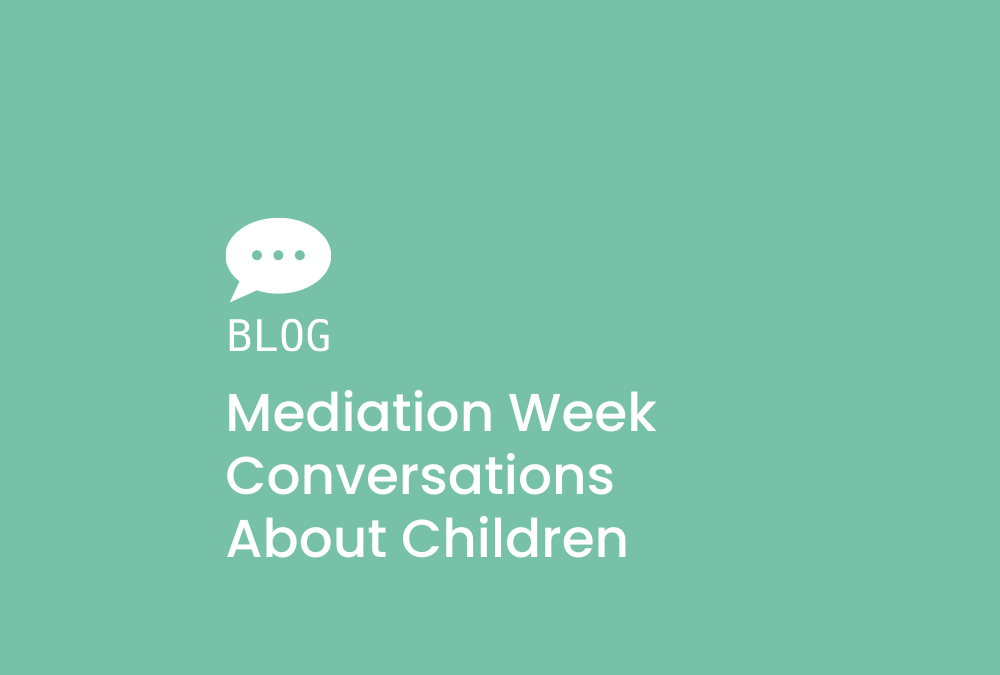Day 3 – Conversations about Children
As part of Family Mediation Week, Day 3 is raising awareness of the benefits of having a child’s voice heard within the mediation process. The aim of this is for parents to better understand and take into account their child’s wishes and feelings before making decisions for them.
Children are more perceptive than they are given credit for. For most separating parents their aim is to deal with issues such as child arrangements and their finances in an amicable manner. However, sometimes emotions are running high and as a result, a matter can turn into high conflict and the children often get caught in the crossfire. When the parties have children and a decision is to be made about their life, a child’s view is often overlooked by both parents and they both feel they know what is best for their child.
Within the process of mediation, it is becoming increasingly recognised that children should have a voice about the upcoming changes in their lives although it is acknowledged that it is the parent’s responsibility to make decisions in respect of their children. This is known as Child Inclusive Mediation (CIM). The government have suggested that a child aged 10 years or over is able to have a voice within the mediation process.
What is Child Inclusive Mediation?
This is an opportunity for a child to have their voice heard through the process of mediation. The chance to attend CIM helps the children feel listened to, respected and valued. This opportunity allows the children to discuss their views and feelings and assist their parents to better understand them and consider their opinions before reaching an agreement.
How do you start the process of CIM?
Involving a child in the mediation process requires serious consideration and the consent of all parties.
Before involving a child both parents need to provide their express consent and once this is sought the mediator will write to the child offering them a chance to meet and speak to the mediator. The child is allowed the freedom to decide whether they wish to take part or not.
What happens after CIM?
CIM is an informal process and anything discussed between the child and the mediator is kept highly confidential. During the process, the child has the power to decide what is disclosed to their parents. The mediator’s role is not to ask the child to make a decision, their role is merely to speak to the child in a safe environment and allow the child to express their views and feelings.
Following the appointment, the mediator and the parents will have a feedback session and the mediator will relay the information which the child has provided permission to disclose.
What are the benefits of CIM?
The benefits of CIM for a child are as follows: –
There are also benefits of CIM for the parents which are as follows: –
For further information in relation to Child Inclusive Mediation, please visit our Mediation website. Or alternatively, you can contact us on 0113 322 9222 or at mediation@consilialegal.co.uk.

